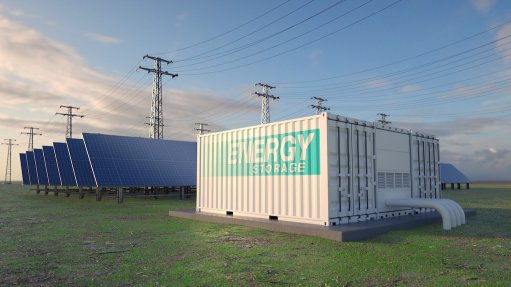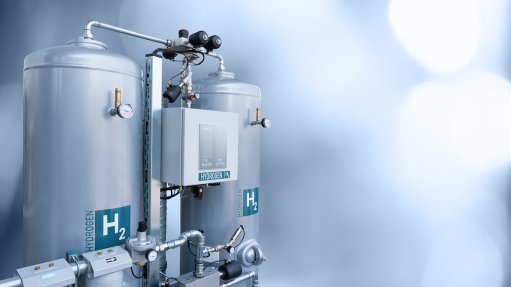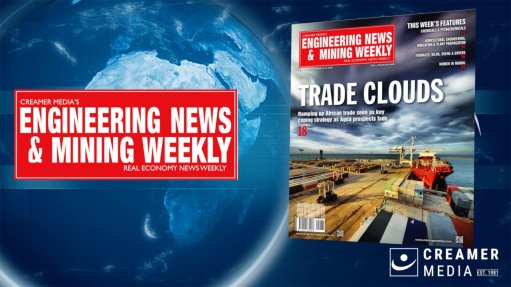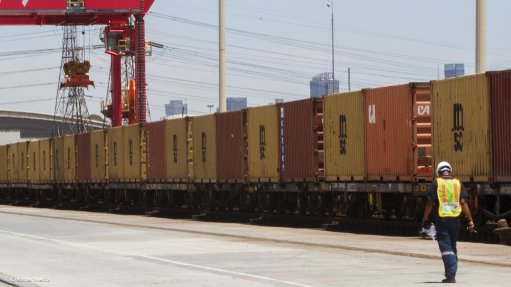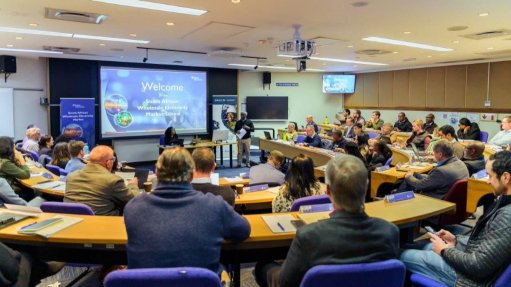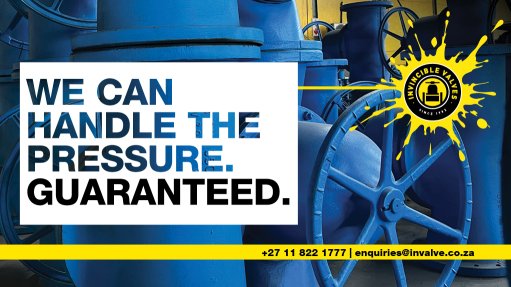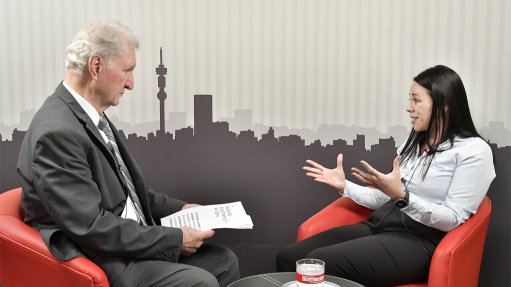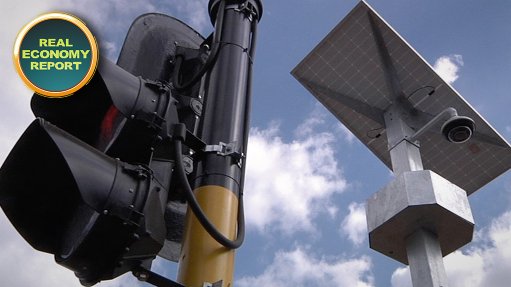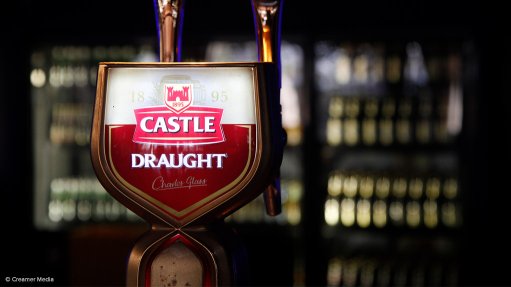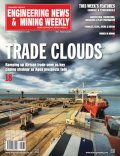Concurrent rehabilitation improves community relations

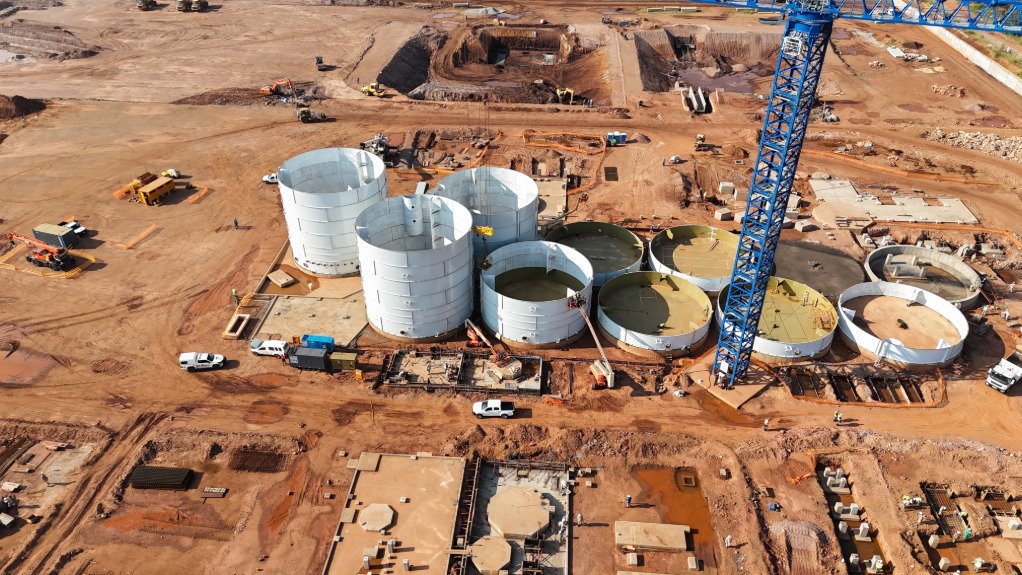
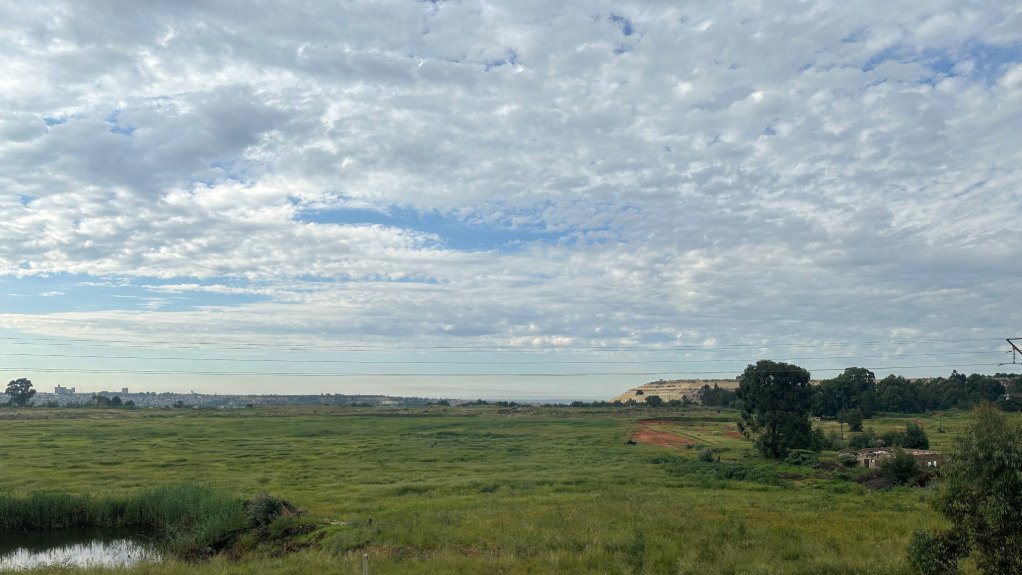
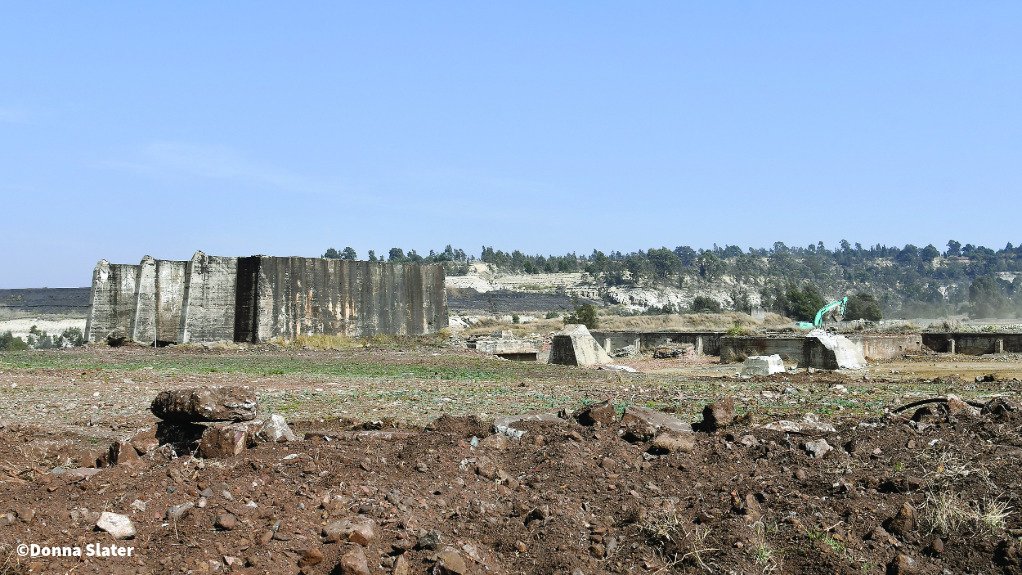
HIGH VOLUMES Pan African's operations process up to 900 000 tonnes of material a month to ensure profitability
NEW LIFE Natural vegetation has started to re-establish in these areas in previously contaminated wetlands following Pan African's clean-up efforts
PROCESSING POWER Construction of the Mogale tailings retreatment plant, with a capacity to treat 800 000 t of tailings a month, is underway, with the facility expected to be commissioned by December
Photo by Donna Slater
Midtier gold miner Pan African Resources’ concurrent rehabilitation at its Mogale tailings retreatment (MTR) project, located at the Mintails site, near Mogale City in Krugersdorp, Gauteng, is taking the steps required to repair relations with community stakeholders while ensuring value for the company and reducing damage to the environment.
Through concurrent rehabilitation, as the miner processes old tailings dumps, areas are reclaimed and rehabilitated, thereby ensuring a greater availability of land for alternate uses, including for industrial, housing, agriculture and renewable-energy projects, among other uses.
The removal of legacy tailings dumps will also reduce the dust pollution which has been prevalent in the area for a number of years, as well as improve the ground water quality over time, as determined by expert independent studies, says Pan African investor relations head Hethen Hira.
Previous tailings dump operators at Mintails constructed a small tailings processing plant, which could not be financially sustained, owing to the low volumes of material it could process and the grade of gold found in the tailings. As a result, jobs, community development projects and rehabilitation opportunities did not materialise, which contributed to significant mistrust by the communities, he explains.
Through its rehabilitation efforts at MTR, Pan African has started with the clean-up of wetland areas contaminated with spillages from previous operators. As a result, natural vegetation, along with indigenous fauna, has started to re-establish in these areas.
As part of the concurrent rehabilitation process, Hira explains that once the tailings are processed through hydro-mining, waste material will be deposited into existing pits underground and in new tailings storage facilities (TSFs).
The new TSFs created will have a smaller footprint and be constructed to global standards for tailings management, to reduce pollution and risks associated with TSFs.
The new TSFs will be lined where required to prevent seepage as well as concurrently vegetated to prevent groundwater contamination and dust pollution.
Hira explains that the site chosen for the new TSFs was previously disturbed, requires rehabilitation and is close to existing underground pits. The site chosen is also close to existing TSFs, as well as power and water resources.
Further, the site is away from formal housing settlements, ensuring that legitimate stakeholders will not be displaced. This will allow commissioning to take place using closely sourced material and for waste to be deposited without further damage to the environment.
Addressing Community Concerns
As part of its efforts to address concerns and ensure transparent communication with all stakeholders, Pan African conducted extensive stakeholder engagement workshops in the respective wards and with legitimate stakeholders, including ward councillors, community interest organisations and community representatives.
Further, Pan African engaged with municipal officials, agencies and established non-governmental organisations in the area, including the Federation for a Sustainable Environment (FSE), which has long been advocating for the rehabilitation of TSFs and return of mine-impacted land to a natural state.
The FSE's efforts include legal action against previous operators to enforce compliance with their obligations.
Pan African has also launched a comprehensive social media campaign and regularly publishes updates on project progress through biweekly advertisements in a local newspaper.
These updates highlight the involvement of local companies and the creation of jobs during the construction phase of the MTR project.
Moreover, the company has facilitated the formation of a roundtable stakeholder engagement forum, which is intended to bring together representatives from community organisations, as well as ward councillors and local municipal officials.
In addition to ensuring transparent communication with all stakeholders, this initiative provides a platform for dialogue and grievance resolution, thereby mitigating public protest action, states Hira.
“Pan African also has a ‘beyond compliance’ policy, where we implement projects with the potential to sustain the local economy after the completion of mining activities. This includes renewable energy and large scale agriculture projects,” Hira concludes.
Comments
Press Office
Announcements
What's On
Subscribe to improve your user experience...
Option 1 (equivalent of R125 a month):
Receive a weekly copy of Creamer Media's Engineering News & Mining Weekly magazine
(print copy for those in South Africa and e-magazine for those outside of South Africa)
Receive daily email newsletters
Access to full search results
Access archive of magazine back copies
Access to Projects in Progress
Access to ONE Research Report of your choice in PDF format
Option 2 (equivalent of R375 a month):
All benefits from Option 1
PLUS
Access to Creamer Media's Research Channel Africa for ALL Research Reports, in PDF format, on various industrial and mining sectors
including Electricity; Water; Energy Transition; Hydrogen; Roads, Rail and Ports; Coal; Gold; Platinum; Battery Metals; etc.
Already a subscriber?
Forgotten your password?
Receive weekly copy of Creamer Media's Engineering News & Mining Weekly magazine (print copy for those in South Africa and e-magazine for those outside of South Africa)
➕
Recieve daily email newsletters
➕
Access to full search results
➕
Access archive of magazine back copies
➕
Access to Projects in Progress
➕
Access to ONE Research Report of your choice in PDF format
RESEARCH CHANNEL AFRICA
R4500 (equivalent of R375 a month)
SUBSCRIBEAll benefits from Option 1
➕
Access to Creamer Media's Research Channel Africa for ALL Research Reports on various industrial and mining sectors, in PDF format, including on:
Electricity
➕
Water
➕
Energy Transition
➕
Hydrogen
➕
Roads, Rail and Ports
➕
Coal
➕
Gold
➕
Platinum
➕
Battery Metals
➕
etc.
Receive all benefits from Option 1 or Option 2 delivered to numerous people at your company
➕
Multiple User names and Passwords for simultaneous log-ins
➕
Intranet integration access to all in your organisation









